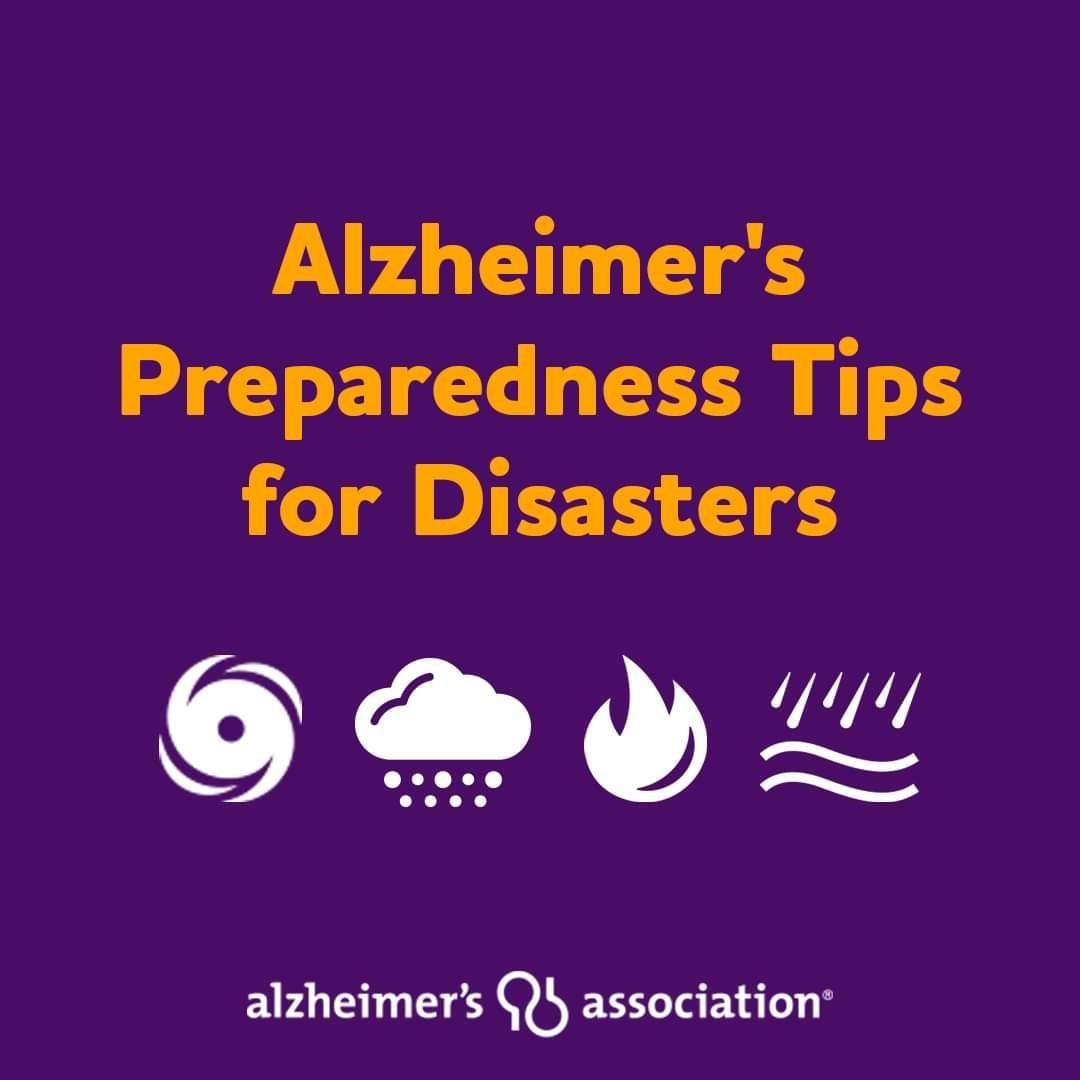September 2022

September is National Preparedness Month and a peak time for natural disasters, such as hurricanes and forest fires. Public health agencies must recognize dementia caregiving as a challenging and unique public health issue — especially during crises.
Anticipating and planning for the needs of people living with dementia and their care partners is one way to reduce hospitalizations during a crisis. Through their mandate to protect the public’s health, agencies can advance proven strategies.
Visit here for more information regarding emergency preparedness for caregivers of people living with dementia.
Emerging Evidence Findings from Alzheimer's Association International Conference® (AAIC®)
More than 10,000 people attended (in person and virtually) this year’s Alzheimer’s Association International Conference (AAIC) in San Diego, California. Findings from several studies are relevant to public health professionals.
Interpersonal, institutional, and structural racism contribute to racial and ethnic disparities in cognitive aging, according to studies out of Columbia University and the University of California-Davis. The Columbia study found, for example, that exposure to interpersonal and institutional racism is associated with lower memory scores that correspond to 1-3 years of chronological age. The UC-Davis study found that among those 90 and older who experienced wide-ranging discrimination throughout life had lower semantic memory than those who reported no discrimination.
Ultra-Processed Food & Dementia Risk: What You Eat Affect Your Brain
People who eat large amounts of ultra-processed foods have a faster decline in cognition, according to a study that followed 10,000 Brazilians for up to 10 years. Individuals who had more than 20% of their daily caloric intake in ultra-processed foods had a 28% faster decline in global cognition, including memory, verbal fluency and executive function — and a 25% faster decline in executive functioning. Ultra-processed foods go through significant industrial processes and contain large quantities of fats, sugar, salt, artificial flavors/colors, stabilizers and/or preservatives. Examples include sodas, sweetened breakfast cereals, potato chips, packaged soups, and many prepared frozen foods.
Upcoming Events
October 5 at 1 p.m. ET
During Hispanic Heritage Month (September 15 — October 15), learn how to better understand the various aspects of the Hispanic/Latino culture. This will help build trustworthy relationships in the community and help integrate the Latino perspective when addressing Alzheimer’s and dementia. Hosted by Alzheimer’s Association community partners, the National Hispanic Nurses Association, the National Hispanic Council on Aging, and National Hispanic Medical Association, the webinar will be held on Wednesday, October 5 at 1:00 p.m. ET.
Register here for the virtual event.
BOLD Center of Excellence on Early Detection Symposium
October 25 — October 26 at 1:00 p.m. to 5:00 p.m. ET
October 27 at 1:00 p.m. to 2:30 ET
Join the BOLD Public Health Center of Excellence on Early Detection for a virtual three-part national symposium on the early detection and diagnosis of dementia. Speakers will share effective strategies and lessons learned for promoting early detection across settings. Participants will also engage in interactive peer-to-peer workshops that provide opportunities to share dementia detection goals and efforts — and to identify opportunities for collaboration and improvement.
Click here to register
November 3 — November 5
Indianapolis, Indiana
At this year’s Gerontological Society of America’s (GSA) annual conference, you will find the Alzheimer’s Association public health team at booth #207/#306. Learn in person about the Healthy Brain Initiative, the Public Health Center of Excellence in Risk Reduction, the Summer Research Institute for early career researchers, and other public health efforts. Or just come by to meet the Alzheimer’s Association’s public health team.
This edition of Alzheimer’s Public Health News is supported by the Centers for Disease Control and Prevention of the U.S. Department of Health and Human Services (HHS) as part of a financial assistance award totaling $2,795,933 with 100 percent funded by CDC/HHS. The contents are those of the author(s) and do not necessarily represent the official views of, nor an endorsement, by CDC/HHS, or the U.S. Government.
For subscription services, please visit alz.org/publichealth

|